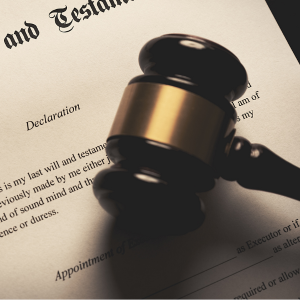
Executor Responsibilities in Texas: What Should You Know?
When someone dies in Texas, an estate executor handles their affairs. But what does this mean? Following Texas probate laws, let’s examine what a Texas estate executor does.

Texas Estate Executor Roles Explained
An executor in Texas has important jobs. They manage the estate based on the will and Texas law. Executors have powers like collecting assets, paying debts, and giving property to beneficiaries as directed. They must always act in the best interest of the estate. Understanding how Texas law guides these duties helps ensure everything is done right and fairly.
How Do Executors Handle Debts and Liabilities?
Executors have a big job handling debts and liabilities. They need to find out all the debts the deceased person owes and use the estate’s assets to pay them before giving anything to beneficiaries. The Texas probate court watches this task as executor debt repayment obligations. Executors follow estate administration rules to ensure creditors are appropriately paid and protect themselves from legal trouble.
Managing Beneficiaries: What Are the Executor’s Duties?
Talking with beneficiaries is another key duty. Executors should explain clearly how estate distribution in Texas will happen, respecting beneficiaries’ rights. Keeping open communication with heirs helps manage expectations and solve any problems or disputes that might come up.
Navigating Property Sales as an Executor
Selling property can be an important part of an executor’s job. Executors might need to organize the sale, which means figuring out the property’s fair market value. Managing estate assets well is crucial to get the best returns for the beneficiaries. Executors should handle these sales carefully, ensuring each step follows Texas probate laws and benefits the estate.
Legal Limitations for Executors in Texas
What Actions Are Executors Prohibited from Taking?

In Texas, executors help manage an estate but must follow certain rules. They must act in the estate’s best interest and make ethical choices. Executors cannot use estate money for themselves or get involved in actions that might cause a conflict of interest. If they do something wrong, like taking estate money for personal use, the court can step in to check on them. Executors must closely follow the executor conflict of interest rules to avoid problems.
Understanding Executor Liability in Estate Management
Executors can be personally liable if they do not do their job correctly. They must meet legal requirements and care for the estate properly. They can be removed or face claims if they are careless in Texas. Executors should know their duties well to avoid getting into trouble. Following Texas law helps them manage their estate rights and avoid legal issues.
Key Legal Constraints on Executor Powers
In Texas, there are limits on what executors can do. They must follow the rules about executor authority limitations and the state’s estate code. Keeping to these limits helps protect the estate. Executors must balance their duties and the legal requirements to manage the estate fairly. They should not act beyond their powers, like selling property without permission, to avoid legal trouble.
Are There Specific Limits on Executor Compensation?
Texas has rules about how much an executor can be paid. Any compensation must fit within legal requirements and may be reviewed by the court. Executors must follow these rules to avoid any disagreements. If there are problems with payment or if they work unpaid, they can ask the court for help. Executors should know about compensation rules to avoid issues with unpaid services.
Knowing these rules is important if you are dealing with estate management in Texas. Talk to legal experts or review the Texas estate code for more detailed rules and advice.
The Probate Process in Texas: Executor’s Role
What Steps Must Executors Follow in Probate Court?

In Texas probate court, executors have important duties. They start by filing the will and all necessary paperwork to begin the probate process in Texas. This means they must meet specific probate filing requirements. Executors should ensure all documents are submitted correctly for court approval. Once the court accepts these documents, court oversight of executors begins. This oversight ensures that they follow legal procedures to manage the estate properly.
How Does an Executor Manage Estate Inventory and Appraisals?
Executors have a big job handling the estate inventory. They must make a detailed list of all assets and determine each item’s fair market value. Professional appraisals might be needed to get accurate values. Executors must keep records of all assets and values as part of their account responsibilities. This is crucial for executor asset management and helps maintain trust while managing the deceased’s property, fulfilling their fiduciary responsibilities.
Executor Reporting Obligations in Texas Probate
In Texas, executors have specific reporting obligations. Part of executor financial management involves regularly updating the court on the estate’s status. These reports include income, expenses, and distributions related to the estate. Meeting these executor reporting requirements shows that they are fulfilling their fiduciary responsibilities and complying with the probate process in Texas.
Finalizing Estate Settlements: What Executors Must Do
Executors have several tasks to complete to finalize estate settlements in Texas. They must pay all debts and taxes before giving any remaining assets to the beneficiaries as outlined in the will. An important part of the executor’s role in estate closure is to follow legal requirements carefully to ensure everything goes smoothly. Finally, estate distribution in Texas must be done correctly to honor the deceased’s wishes and finish the probate process efficiently.
For more help with real estate matters during this process, consider exploring other resources or reaching out for guidance.
Challenges Executors Face During Estate Administration
Common Executor Missteps and How to Avoid Them

Being an executor is a big job. Sometimes, even executors with good intentions make mistakes. Here are some common missteps and tips to avoid them:
- Not Following the Executor Duties Checklist: Use a checklist to keep track of all your tasks. Missing steps can lead to breaches of duty.
- Overlooking Fiduciary Responsibilities: Executors must always do what’s best for the estate. Not doing so can be seen as misconduct, especially in Texas.
- Poor Record Keeping: Keep detailed records of every transaction. This helps defend against claims of misconduct.
- Miscommunication with Heirs: Communicate clearly with heirs. Make sure everyone understands the process.
For executors in Texas, knowing these challenges can help you avoid problems and the risk of being removed.
Handling Disputes Among Heirs: Executor’s Approach
Disputes among heirs can be challenging. Here’s how an executor can manage them:
- Clear Communication: Talk openly and honestly with heirs about their entitlements. This helps prevent conflicts.
- Seeking Legal Advice: A probate attorney in Texas can help resolve disputes. They guide you through the resolution process.
- Staying Neutral: Stay impartial and don’t take sides. Make sure your actions align with your ethical duties.
Using these strategies, executives can settle disputes and make the administration process smoother.
Ensuring Fair Distribution of Assets
Making sure assets are distributed fairly is a key responsibility of an executor. Here’s how to do it:
- Understand Estate Distribution Laws in Texas: Learn about local laws on estate distribution to meet your fiduciary responsibilities.
- Manage Assets Wisely: Properly manage assets to ensure they are distributed according to the will or court orders.
- Know the Beneficiaries’ Rights: Understand Texas beneficiaries’ rights to ensure fair treatment.
- Court Oversight: Sometimes, courts watch over the executor’s actions. Be open and transparent with all distributions.
Good management and communication lead to fair distribution, helping to avoid disputes and succeed in estate administration.
When Can an Executor Be Removed from Duty?
Executors can be removed for specific reasons:
- Breach of Duty: If an executor doesn’t fulfill their duties, like mismanaging assets, they could be removed.
- Executor Misconduct in Texas: There are specific laws about executor behavior. Any misconduct can lead to removal.
- Personal Liability: Executors acting against the estate’s interests might have to pay personally.
- Court Oversight: Courts can remove executors not doing their job right.
Knowing these risks helps executors do their job well and keep their position.
By understanding these responsibilities, executors can handle the complex estate administration process better, giving peace of mind to everyone involved.
Executor Guidance: Resources and Support
Where Can Executors Seek Legal Advice in Texas?

If you’re an executor in Texas, getting the right legal help is important. You can talk to a probate attorney in Texas who knows all about the Texas estate code. These attorneys understand executors and Texas law and can help you with the executor legal requirements so you do your job well.
Utilizing Texas Probate Court Resources Effectively
The Texas probate court can help executors. The court checks to ensure things are done right with its court oversight of executors. You’ll need to know the probate filing requirements and take the executor’s required actions to manage the estate correctly.
Checklist for Executors: Managing Estate Responsibilities
Being an executor means doing many tasks. Here’s a list to help:
- Executor Duties Checklist: Write down all the things you need to do.
- Executor Financial Management: Keep good financial records and manage money wisely.
- Executor Account Responsibilities: Take care of all the financial accounts properly.
- Executor Obligations in Texas: Follow the laws in Texas for executors.
- Executor Fiduciary Responsibilities: Act in the best interest of the people who will get the estate.
Understanding Executor Rights and Seeking Assistance
Knowing what you can do as an executor will help you do your job right. Executors have certain rights under executor rights in Texas. This gives them executor independence in Texas to make decisions. Knowing the legal details and asking for help when needed is good. Learn about executor compensation in Texas so you know if you’re being paid somewhat, and remember your executor’s ethical duties to keep the trust of those involved.
FAQs:
What are the key responsibilities of an executor in Texas?
An executor in Texas must settle the estate, manage money, and pay debts and taxes. They also need to follow Texas probate laws and respect the rights of beneficiaries.
Can an executor be held personally liable for mistakes in Texas?
Yes, executors can be personally responsible if they make mistakes or act wrongly. They should do their job carefully and clearly to avoid legal problems.
How does the court in Texas monitor executor actions?
Texas probate courts supervise executors. Executives must share financial records with the court to manage the estate properly and follow its rules.
What limitations do executors face in Texas regarding inheritance distribution?
Executors can’t give out assets without the court’s approval, especially if there are arguments. They must follow Texas inheritance laws and ensure all beneficiaries’ rights are respected.
How do Texas laws address conflicts of interest for executors?
In Texas, executors must not have conflicts of interest. If they do, they should get legal advice to handle the estate fairly and legally.
What is the role of an executor in managing taxes for an estate in Texas?
Executors file estate taxes and make sure all tax bills are paid. They must keep good records and look for deductions or tax breaks.
Can beneficiaries in Texas question the actions of an executor?
Yes, beneficiaries can ask about what an executor does. If they think the executor did something wrong, they can try to solve it legally.
What steps should an executor take if facing removal in Texas?
If an executor might be removed, they should immediately talk to a lawyer. Keeping good records and showing they did their job right can help defend them.
Key Insights
- In Texas, an executor has specific duties and limits. Knowing these roles is vital for following state laws and probate rules.
- Executors must act responsibly to avoid problems like personal liability or being removed from their role.
- Planning estates involves knowing executor limits and communicating well with heirs and beneficiaries.
- According to the Texas estate code, executors must handle money matters, such as debt repayment and estate taxes.
- If an executor mismanages things, it can cause legal trouble. Getting advice from a probate attorney in Texas is helpful.
- Understanding executor pay and bond needs is important for managing responsibilities in Texas probate.
- Completing an estate involves caring for beneficiary rights and closing the estate while keeping trust accounts.
- Executors and lawyers need to expertly handle complex situations, such as intestacy laws, common law marriages, divorces, and cohabitation agreements.
- Executors managing child guardianship or trustee duties should follow Texas and other states’ laws.
- Executives should work with experienced lawyers to avoid conflicts of interest to ensure everything is done legally.
This information applies to Texas and its cities like Dallas, Fort Worth, Arlington, and more. For help or questions, call us at (214) 393-8026. You can also visit our website at House Buying Girls for more details.


